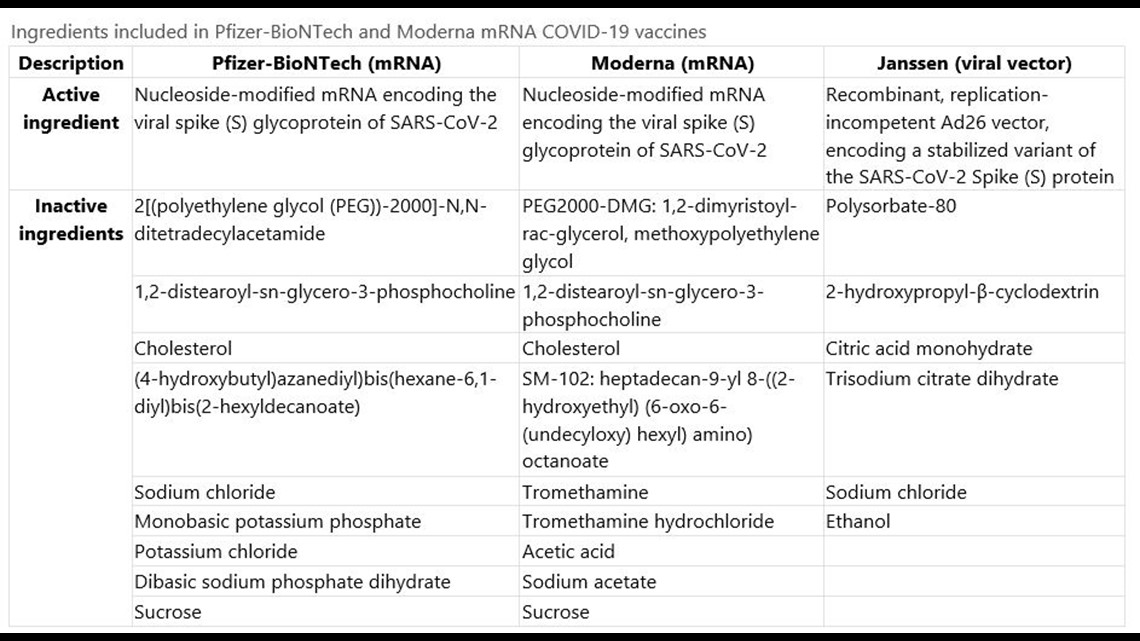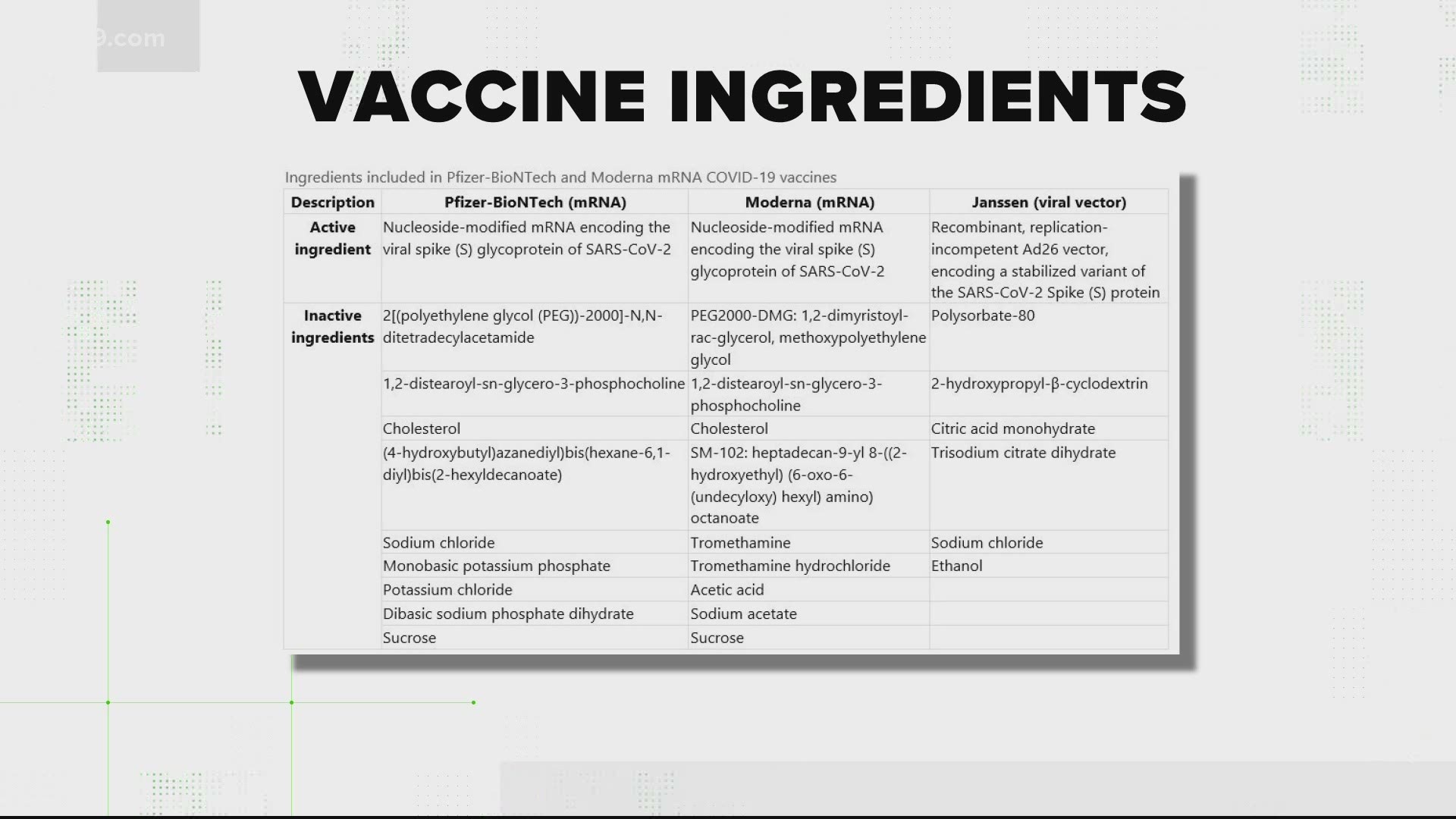WASHINGTON — You might be wondering: What is in these coronavirus vaccines? We have told you about the mRNA and viral codes to spark immunity in your body.
All this information is in plain sight. The Centers for Disease Control and Prevention (CDC) lists the ingredients for all the vaccines. According to experts, even though there are complex chemical names it is all standard vaccine technology.
Question:
What else is in that solution in the COVID-19 vaccine vial?
Answer:
Besides the payload of the vaccine and its vehicle, there is a salt and water solution.
Our Sources:
Dr. William Moss, a vaccines expert from Johns Hopkins University. Dr. Bruce Walker, an immunology expert from the Harvard Medical School and the CDC.
What We Found:
Inside those precious vials is a map to defeating the coronavirus. But, you have probably wondered, what is all this other liquid in the vial?
“The briefing document that the company submitted to the FDA you can get online actually has all the ingredients listed,” Dr. Moss explained.


It is all out in the open. This is the list of active and inactive ingredients for the vaccines. But what does it all mean?
Start at the core. All three vaccines have a genetic map to show your body how to create immunity.
Pfizer and Moderna use mRNA, while Johnson & Johnson uses a spike protein.
“All vaccines have some kind of vehicle in which they're delivered,” Dr. Walker said.
The vehicle for Pfizer and Moderna vaccines is a nanoparticle.
“It's basically mRNA some fats that basically protect the RNA,” Dr. Moss said.
Johnson & Johnson’s vaccine uses a non-replicating virus as its vehicle.
What is the rest of this liquid in the vial?
“It's just these kinds of salts, salt solutions or buffer solutions, basically, water and salts,” Dr. Moss said.
“It's a solution that's partly saltwater and partly something called polyethylene glycol, which is a substance used quite frequently in this sort of situation,” Dr. Walker said.
Which, according to our experts, is standard for vaccines.
According to Dr. Walker, these vaccines do not stay in your body that long. Take the mRNA vaccines as an example. He said those are out of your body within a day or two.

